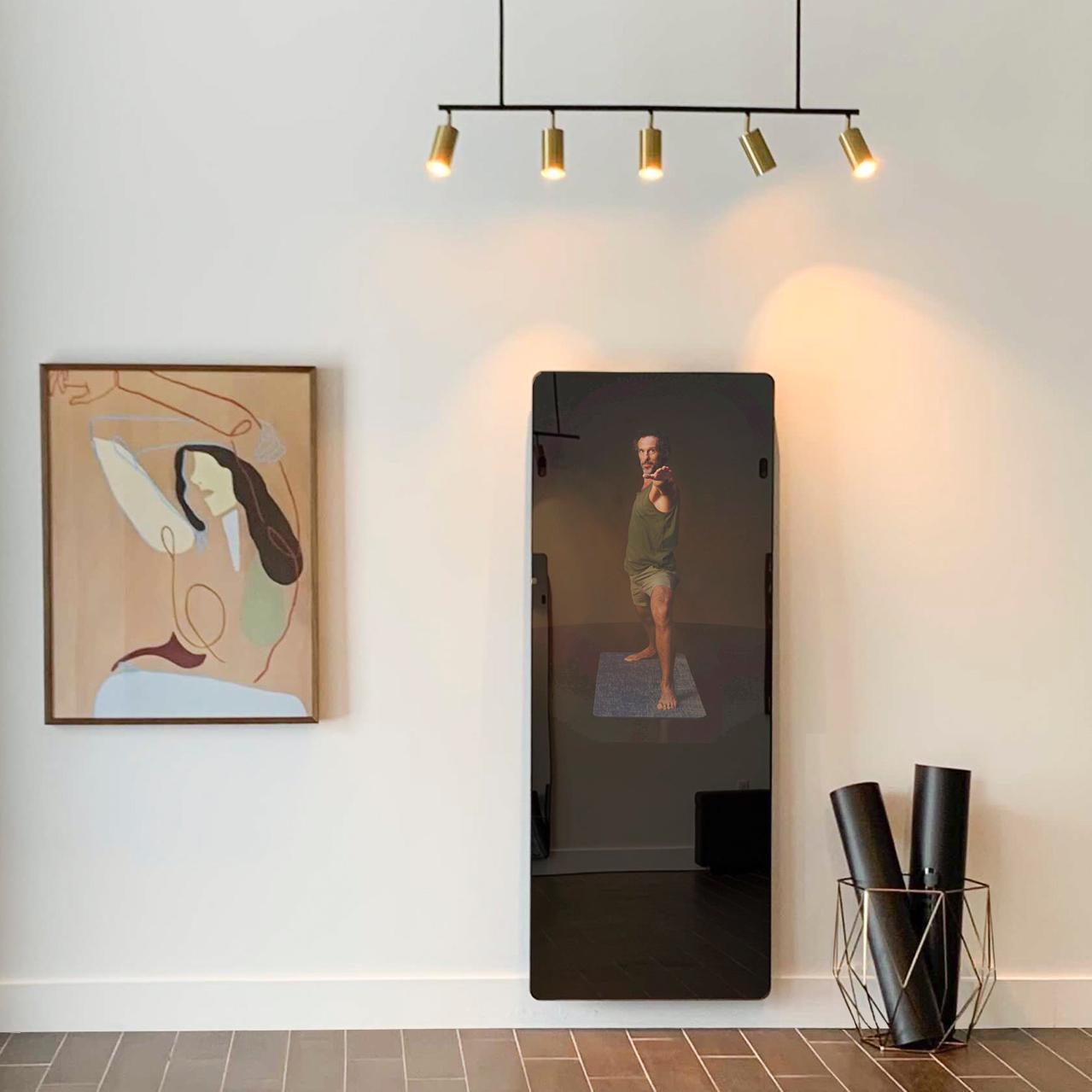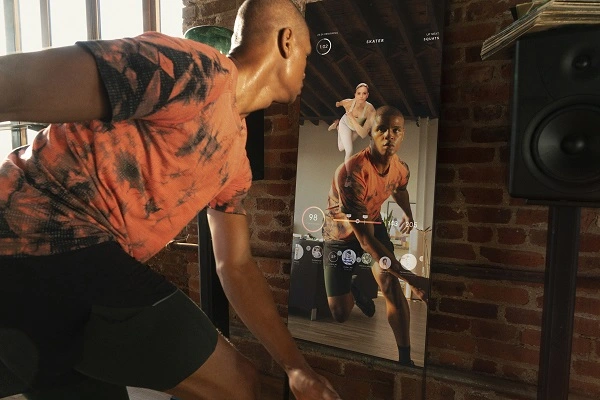Forme Goes Public With Connected Fitness Mirror, but Shares Tumble

Forme is looking to dazzle connected fitness seekers with live virtual personal training and smart mirrors, but it had a rough first day on Wall Street
Forme, a connected fitness company offering mirror products, went public with a $12 million IPO, but its shares fell 17% on day one of trading.
The Austin-based digital fitness platform, which trades under the name Interactive Strength Inc. (TRNR) opened Friday at $8.20 and fluctuated throughout the day from $7.50 to closing at $6.61.
The fitness company offered 1.5 million shares at $8 per share, with underwriters granting a 45-day option to purchase up to 225,000 additional shares of common stock at the IPO price to the public, less underwriting discounts and commissions, Forme said in a press release.
Aegis Capital Corp is acting as the sole underwriter.
Forme combines connected fitness hardware with live virtual personal training and coaching. The fitness brand offers two connective hardware products, including the Forme Studio, a fitness mirror, and Forme Studio Lift, a fitness mirror with cable-based digital resistance.
When not in use, Forme’s connected fitness mirrors turn into full-length mirrors.
The innovative fitness system was developed by Yves Béhar, a Swiss industrial designer who co-founded Forme in 2017 with Trent Ward, the company’s current CEO.
The idea for Forme came as Ward, busy with work, realized he wasn’t making it to the gym regularly, and he started an at-home fitness routine with a trainer. He began contemplating fitness equipment designs and started searching for an industrial designer. Soon after, he was introduced to Béhar, who was excited at the prospect of creating a piece of equipment in the health and wellness space.
Béhar had experience with Nike developing gym equipment that turned into office furniture, and was intrigued with the concept of transformation, said Ward in a 2020 interview with Fit Tech.
He revealed that everything in Béhar’s home seemed to be able to disappear into the walls when not in use, so it was his idea to turn a piece of fitness equipment into a mirror for both the functional aspect and to conceal the device when not in use.
The development process took four years due to sourcing hundreds of custom parts and finding the finest manufacturers.
The home-based system hit the market in 2020 as demand for home fitness equipment surged due to the pandemic.
In 2021, Forme announced a partnership with Barry’s in which Forme featured Barry’s digital offering on its fitness mirrors. That same year, Forme also began a nationwide retail rollout, collaborating with eleven stores in Westfield Shopping Centers. The connected fitness brand opened its first flagship locations in Los Angeles and New York City’s World Trade Center.
The timing of Forme’s IPO seems curious given the current pulse of at-home fitness and perhaps the future of home-based digital fitness training.
As it stands, Forme’s competitors, such as Lululemon’s Mirror and Tonal, have faced struggles as fitness enthusiasts have either returned to the gym, turned to hybrid fitness models or have taken a liking to smaller, boutique fitness experiences.
Lululemon, which acquired MIRROR for $500 million in 2020 during the at-home fitness boom, is now reportedly looking to cut ties with the connected fitness mirror product just three years later and is exploring a sale.

Tonal sounded the alarm last summer, taking its LA studio offline, instituting layoffs and warning that it was facing a “challenging time.” Those challenges came just one one year after the connected fitness company hit unicorn status.
For Tonal, second round of staff cuts occurred at the start of this year, and the at-home fitness company announced that it would raise its membership prices and increase the cost of its signature trainer.
Last month, amid rumors that it was considering selling, Tonal announced it had raised $130 million in fresh funding and appointed Krystal Zell as its new CEO, with founder Aly Orady stepping down from that role and transitioning to Chief Technology Officer.
While Forme’s connected fitness offerings include equipment Lift, $5,995, and Studio, $2,495, the home-based company also features an iOS app where members can join for $49 for their first month and then $149 each month afterward. In return, Forme members will work with a trainer to create a personalized plan and access on-demand classes and weekly live, 1-on-1 sessions with a trainer, which is included in the first month and sold separately after.
The ability to work at home with a virtual trainer without purchasing expensive hardware could appeal to busy fitness enthusiasts. As for its IPO, Forme could use the additional capital, as it reported a net loss of $39 million on revenue of only $500,000 for the nine-month period that ended September 30.
Courtney Rehfeldt has worked in the broadcasting media industry since 2007 and has freelanced since 2012. Her work has been featured in Age of Awareness, Times Beacon Record, The New York Times, and she has an upcoming piece in Slate. She studied yoga & meditation under Beryl Bender Birch at The Hard & The Soft Yoga Institute. She enjoys hiking, being outdoors, and is an avid reader. Courtney has a BA in Media & Communications studies.



